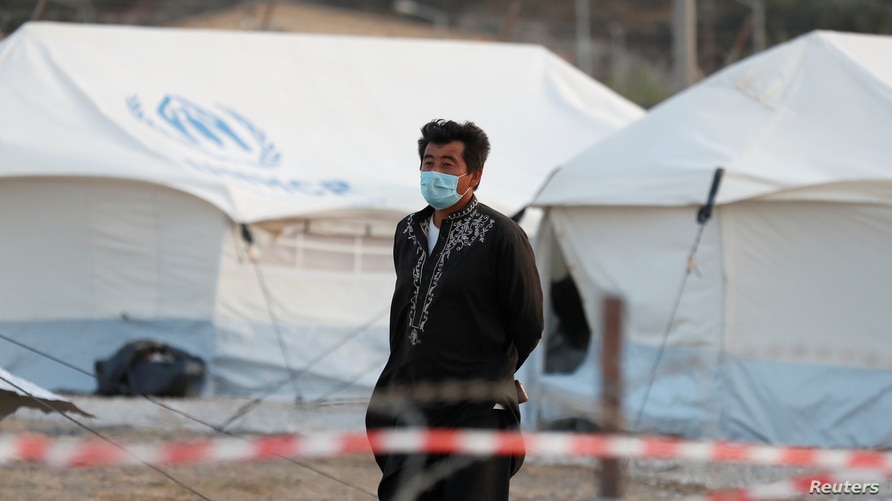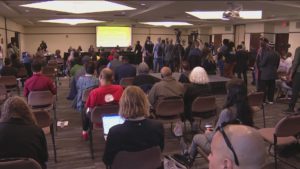GENEVA – The United Nations says an operation to shelter thousands of migrants and refugees made homeless by fires that devastated the Moria center on the Greek island of Lesbos is proceeding smoothly despite fears of violent disruptions.
More than 12,000 asylum seekers who fled fires that destroyed the Moria reception center nearly two weeks ago have been living out in the open or in makeshift shelters.
The U.N. refugee agency says nearly 5,000 people have been moved to a new emergency facility set up by Greek authorities in Kara Tepe, close to the remains of Moria. The new site can accommodate 8,000 people.
Many of the migrants had resisted efforts to move them to temporary tents set up after the fires, fearing they would be stuck there. However, UNHCR spokeswoman Shabia Mantoo says a police operation that began Thursday to transfer the asylum seekers to the new site has been proceeding smoothly. She says no use of force or incidents of violence have been reported.
“Before entering the facility, all new residents are undergoing rapid COVID-19 testing to help contain the virus,” she said. “As of today, as a result of this mass testing, we understand there are some 150 positive cases. All have received medical attention and are isolating in a quarantine area within the new site.”

Mantoo says the refugees are worn out from being on the street for several days and are relieved to be someplace where they can receive basic assistance, but they remain worried about their future — a concern, she says, the UNHCR shares.
“This new site is currently functioning as an emergency shelter facility… UNHCR supports its use as a temporary solution but cautions that what may be deemed adequate in terms of shelter and services during emergency situations is not appropriate for the longer term. Greek authorities are yet to clarify the future use of this site.”
The UNHCR is urging Greek authorities to continue the safe and orderly transfers of refugees to the mainland and to European Union-supported relocations. It says long-term solutions must be found for the thousands of asylum seekers living in squalid, overcrowded settlements.




